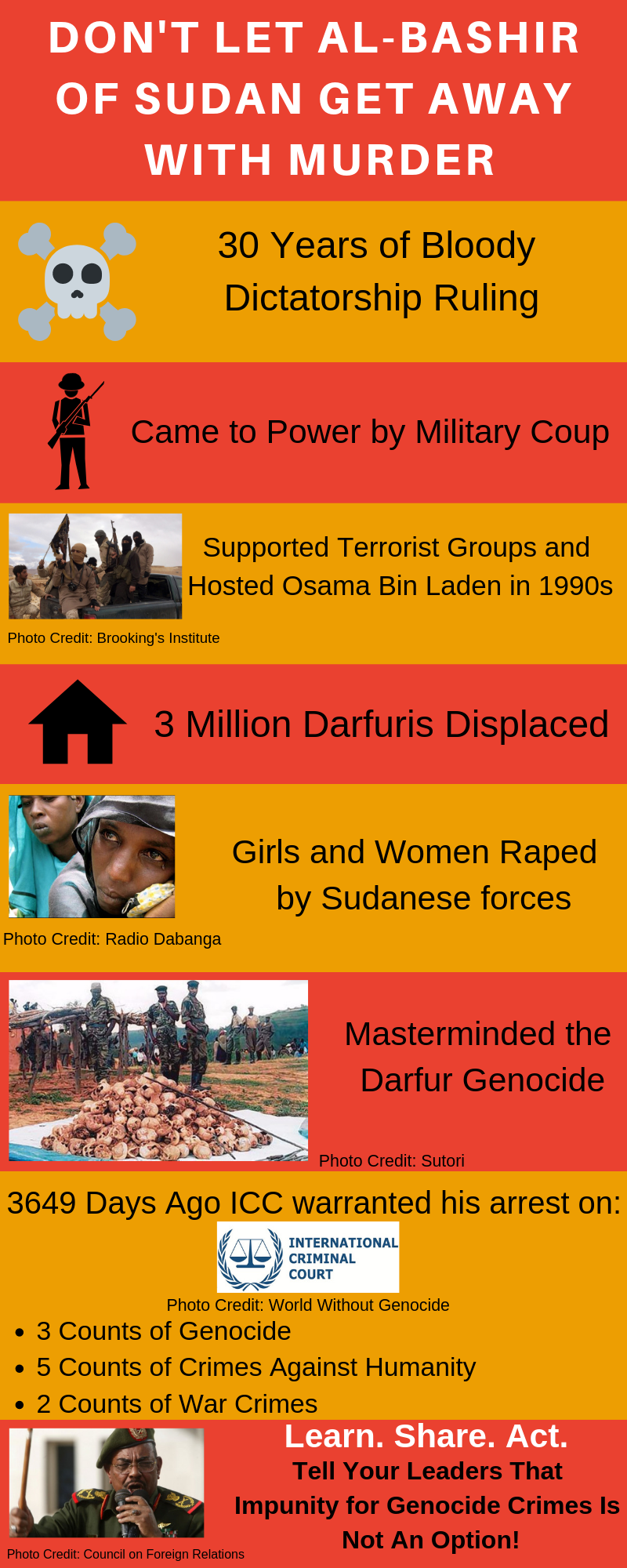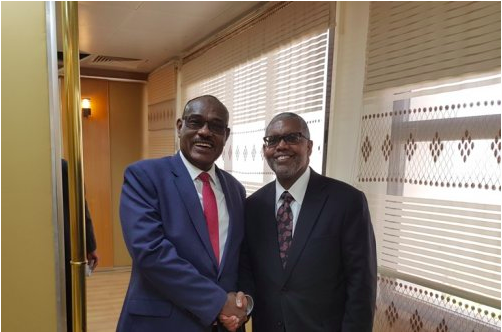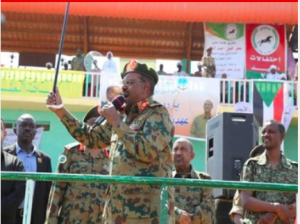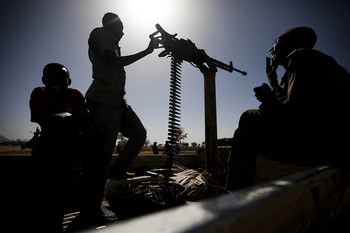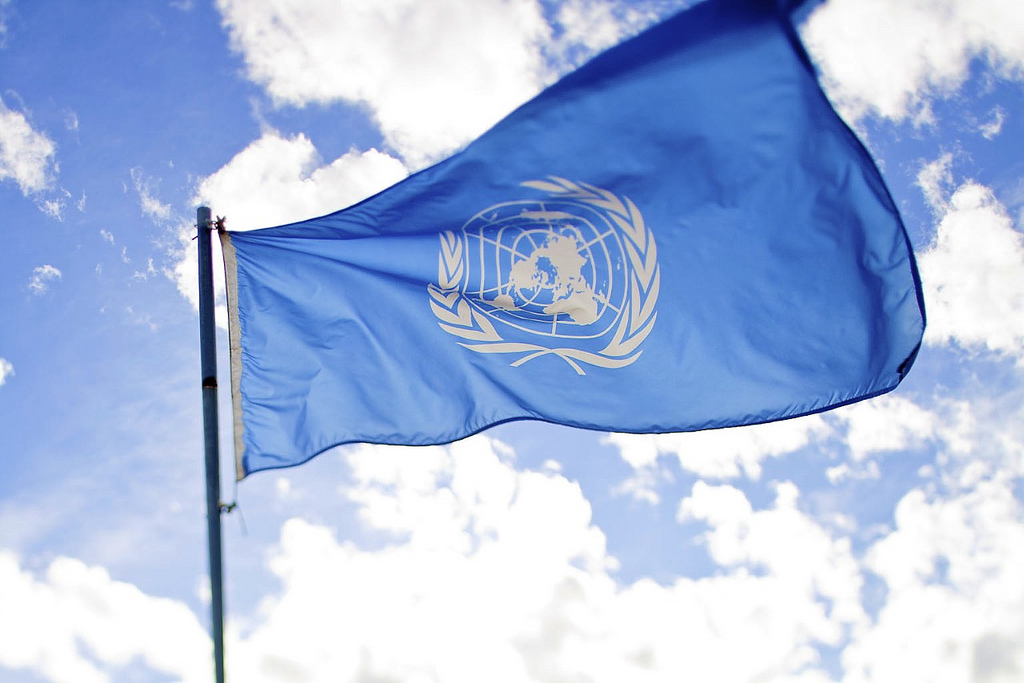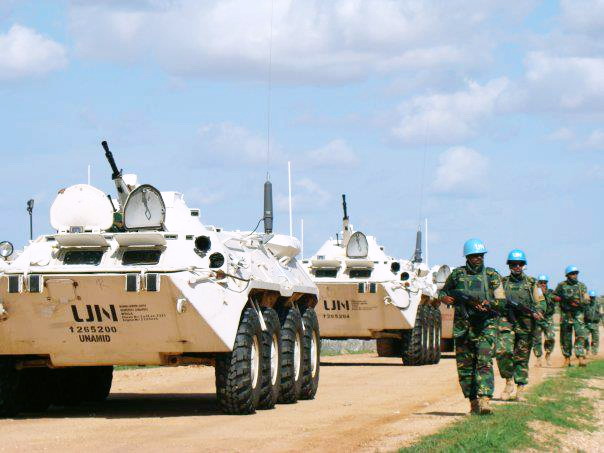On Friday, December 14, Darfur Women Action Group (DWAG) members traveled to New York City to attend an International Criminal Court (ICC) briefing to the United Nations Security Council. The briefing, delivered by ICC Chief Prosecutor Fatu Bensouda, was on the 28th report on the situation in Darfur. DWAG members also had the opportunity to meet privately with Chief Prosecutor following the briefing.
The report began with Prosecutor Bensouda reminding the member states that Sudanese President Omer al-Bashir and other Sudanese government officials have multiple arrest warrants against them, comprising over 60 counts of war crimes and over 50 counts of crimes against humanity. Furthermore, Prosecutor Bensouda emphasized that there is growing evidence showing al-Bashir is responsible for the crimes that were committed in the past two decades as well as the ones that are still occurring. The report also highlighted the recent escalation of attacks and increased civilian casualties in the Jabel Mara region, an area in which atrocities are regularly being committed against the people of Darfur.
“I continue to be concerned about sexual and gender crimes in the Jebel Marra area,” said Prosecutor Bensouda. “The government (of Sudan) continues a policy of aggression and antagonism.”
Prosecutor Bensouda then voiced the ICC’s dissatisfaction with member states’ failure to enforce the Rome Statute. She pointed out that some member states had failed to arrest al-Bashir and bring him to justice while he was visiting certain countries. She then demanded that the UNSC must request an explanation from ICC member states who fail to uphold their legal obligation to the ICC.
Prosecutor Bensouda urged the need for UNSC members to support the ICC and stressed that the people of Darfur must not wait any longer to receive justice. She concluded her address with a call for the UNSC to take concrete action that will hold criminals accountable and bring justice to the victims. “Justice delayed is justice denied,” said the Chief Prosecutor in her final statement.
Attending member states had the opportunity to state their positions in response to the ICC Chief Prosecutor’s report. The overwhelming majority of the Security Council members expressed support of the Chief Prosecutor’s report, raised concerns about the future of the internally displaced people (IDPs) in Darfur and expressed their country’s dedication to the ICC’s work in Darfur. Nations, such as the United Kingdom, France, Sweden, Bolivia, Côte d’Ivoire and the Netherlands, reiterated their government’s commitment to the ICC, to the rights of the people of Darfur, to justice, and have echoed the Chief Prosecutor’s call for the need to bring indicted parties to face justice at the ICC.
There were a few state representatives who offered contradictory remarks, such as Ethiopia, Russia, China, Kuwait and the United States, most of who are not even party to the ICC. Nonetheless, they have not denied the fact that there are atrocities being committed in Darfur and there is a need for action to resolve the situation.
Sudan’s Ambassador to the UN, in an attempt to obfuscate the issue, offered the most controversial, unethical and unprofessional statement in response to the Chief Prosecutor’s report. The Sudanese representative stated that Sudan complies with the Geneva Convention, but failed to offer contradictory evidence against the ICC accusations.Instead, the Sudanese representative used false statements to attack and discredit the ICC as an institution.
Following the briefing, one of the Sudanese diaspora members said, “for Sudan to attack the ICC is not a surprising act. We must be reminded of the fact that this is a regime committing genocide against its own people. It’s just one of many tactics Sudan has employed to divert the attention from their own crimes. As was echoed by the office of the prosecutor’s team, “the Court will not be distracted by the baseless attacks being pushed by Sudan”.
Both the the prosecutor’s team and the Darfuri diaspora have agreed that their focus should not be on the government of Sudan’s verbal attacks on the ICC but on the crimes Sudan is committing every day as well as the case for accountability, no matter how long it takes.
Following the briefing DWAG members met privately with Prosecutor Bensouda. She stressed the fact that victims’ voices must be heard and has assured the members of the affected community that impunity for these serious crimes is not an option. She emphasized that her office will remain committed and will do everything in its capacity to ensure accountability for the perpetrators and justice for the victims in Darfur will be realized. The Sudanese diaspora, justice advocates and the members of the affected community expressed appreciation to the Chief Prosecutor and her team for their tireless effort and reiterated their unwavering commitment to continue to fight for justice. Activists, survivors, and DWAG members alike will continue to voice support for the Chief Prosecutor’s office, regardless of any obstacles Sudan and its allies attempt to present.
“No one can commit crimes of this nature and then not face judgement, no matter who you are, or what country you are in,” said Prosecutor Bensouda. “You must face the consequences.”
“In the face of genocide, impunity must not be tolerated, and no one should expect the people of Darfur to relinquish their rights to pursue justice for crimes and the suffering they continue to endure, said Niemat Ahmadi, President and Founder of DWAG.
DWAG believe we must stand firm and rally our supporters to fight against impunity.
